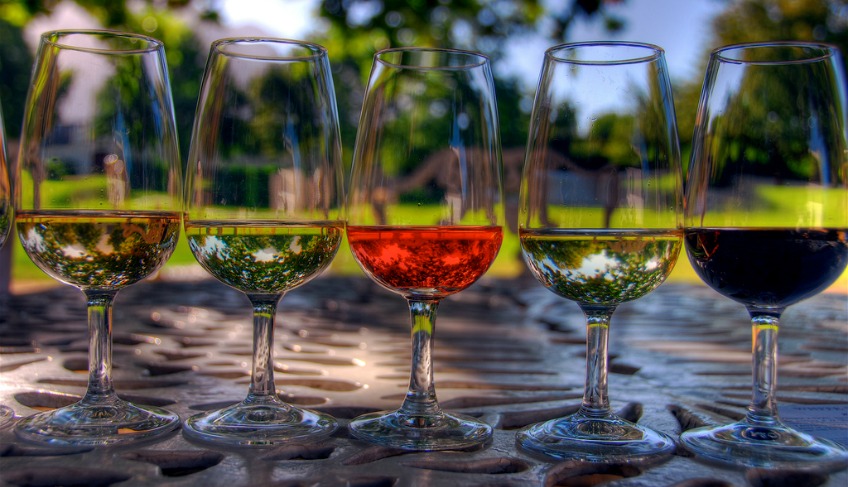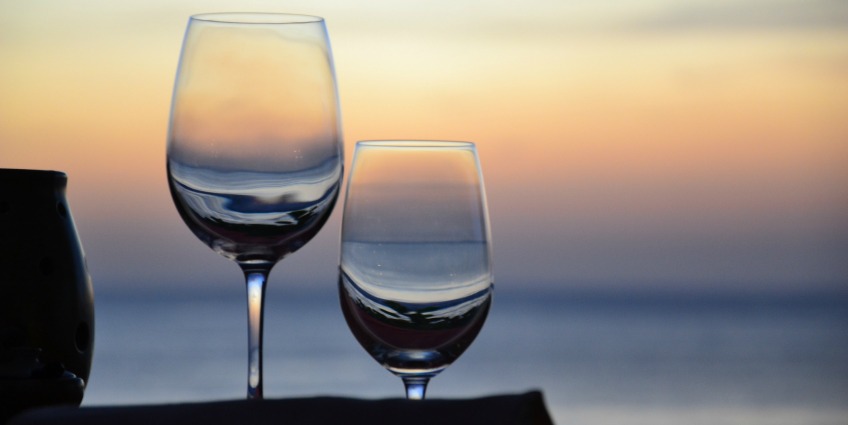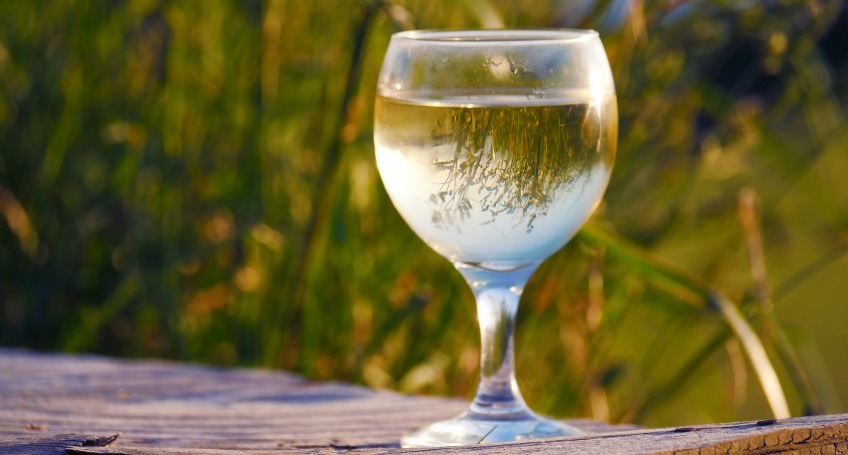There are tons of cool gadgets and accessories available for wine nerds, everything from preservation tools to bottle stoppers, drop stops to decanters. But the ultimate wine nerd accessory is something much more basic, and a lot harder to find: the perfect wine glass. So with that in mind, when you set out to buy new glassware ask yourself these ten questions.
1. Do you have all the facts?
Yes, the type of glass you use really does make a difference on your wine experience, particularly on your sense of smell. Glass or crystal are neutral vessels and do not chemically react with the wine. A wide bowl and a tapered edge help allow aromas to expand without escaping. Coloured or faceted glass interferes with perception and can change how we perceive the wine. A thinner lip with a cut edge, in place of a rounded edge, will help the wine flow fall smoothly onto your tongue as opposed to clinging to the glass. And don’t forget: all crystal is glass but not all glass is crystal.
2. What, when and where do you drink wine?
Analyse your drinking habits. Do you enjoy a glass of wine nightly with your dinner? Do you drink mostly medium bodied reds, or crisp whites? All of these are important factors for determining your glassware needs. A simple, all-purpose Bordeaux glass may be your best option. If you favour one varietal, such as Pinot Noir, it may make sense to invest in a Burgundy glass. A true wine nerd may invest in a range of varietal glasses. Or you can take the middle road and opt for a set of white wine, red wine and flutes.
 Photo: Flickr.com/Slack12
Photo: Flickr.com/Slack12
3. How much space do you have?
Particularly important for city dwellers, storage space is also a key factor in any purchasing decision. Wine glasses are awkward and bulky. And did I mention awkward? Staggering the orientation of the glasses (one up, on down, etc.) will save space but you still need a place to put everything. Think carefully about what you can accommodate so you don’t have to store your stemware on your kitchen counter.
4. How lazy are you?
Be honest, it’s an important question. Crystal glassware requires careful HAND washing and drying. Traditionally more fragile than glass, leaded crystal cannot go in the dishwasher. It is also more porous than glass and if not cleaned properly it can absorb odours, even from soap. In addition, due to its fragile nature, Crystal easily develops blemishes or flaws. So if you don’t feel up to hand washing think about glass or current innovations such as titanium crystal. And remember the most important rule: rinse the glasses with warm water and save the washing for the day after you finish the bottle.
5. How accident prone is your household?
Crystal is more fragile and prone to blemishes. And it is always a sad, messy occasion when your guest knocks over and breaks their full glass of red wine. Sturdy glass makes for lower replacement costs. Or you can consider the trendy stemless option. Easier to store, easier to clean and less chance of breakage, these glasses are a good option for a more casual setting. But beware they do have a drawback, as they lack a stem you are holding the glass by the bowl, leaving fingerprints and warming the wine faster.
 Photo: Flickr.com/Rob Franksdad
Photo: Flickr.com/Rob Franksdad
6. Do you drink dessert?
Dessert and fortified wines present an entirely new dilemma. If you only occasionally indulge you can get creative but for the port fanatics there are important factors to consider. Dessert wines are typically higher in alcohol and as such portions should be kept small. Traditional small tulip glasses help develop aromas and deliver wine to the back of the palate to prevent the sweetness from overwhelming your palate.
7. What about bubbles?
Traditionally champagne was served in the coupe, a flat wide glass said to have been modelled after Marie Antoinette’s breast. In modern times the flute, a tall skinny glass, has become more popular as it better contains the bubbles. But if you are just an occasional imbiber you can think outside the box. Follow the trend of industry professionals and use a white wine glass, or get creative and use a Pinot Noir glass for that Blanc de Noirs.
8. What best suits your personal style?
Is your table traditional or modern? Do you prefer to host outdoor barbeques or formal dinner parties? All of these factors should influence your stemware purchasing. Look for glasses that both suit your personal style and your drinking habits. And remember the process is supposed to be fun and help you enjoy your wine.
 Photo: Flickr.com/Simon_sees
Photo: Flickr.com/Simon_sees
9. How much do you want to spend?
Riedel. Schott Zwiesel. Zalto. Crystal wine glasses can get very expensive. We all want to be able to buy and build an entire collection of varietal specific crystal wine glasses, but reality can get in the way. Riedel suggests spending approximately the same amount on each glass as you would pay for your average bottle of wine. So when you are shopping for glassware set a budget. Do a little research. And maybe a bit of bargain hunting.
10. How much space do you really have?
You’ve already determined how many glasses you can accommodate. You know generally what you want to buy. But do you really know your space? It may not seem like much but the height of the glass can make a world of difference. Nothing is worse than investing in good glassware only to get home and realise you have no place to store it. So do yourself a favour and make sure you double check your measurements before you buy your stemware. And as an added bonus shorter stems are easier to load in a dishwasher.
This article was written by Aliye Melton. Follow Aliye’s adventures at Cuvee Appeal.
Now you’ve got your glasses, here are 7 Amazing Ways to Open Wine without a Corkscrew!
Title photo: Flickr.com/John D.